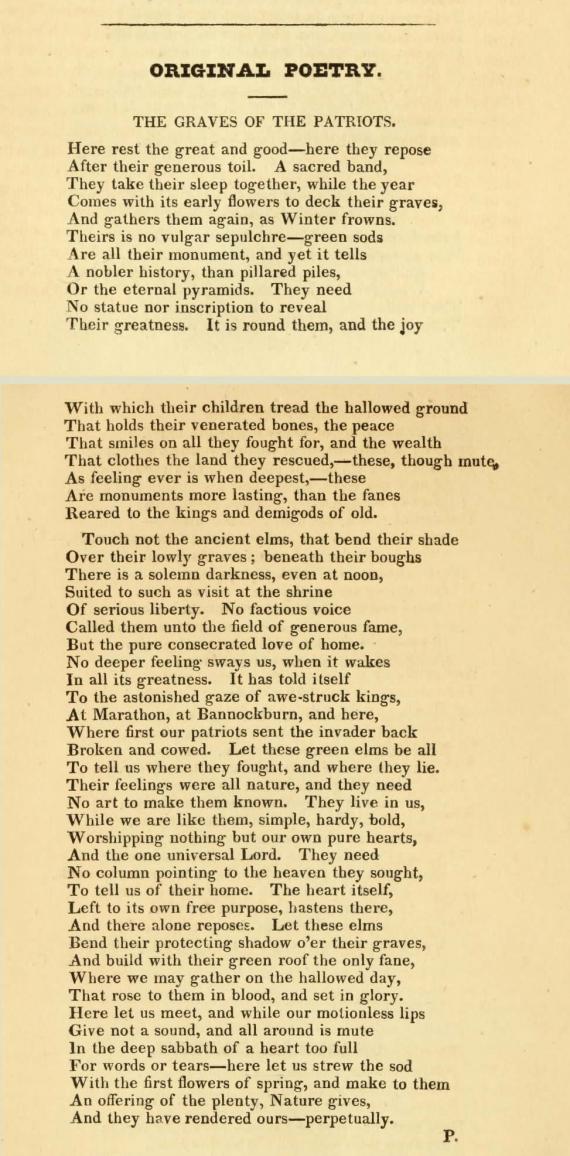P. [JAMES G. PERCIVAL, (1705-1856)], “The Graves of the Patriots” in The United States Literary Gazette, July 1, 1825, Volume 2, Issue 7
P. [JAMES G. PERCIVAL, (1705-1856)], “The Graves of the Patriots” in The United States Literary Gazette, July 1, 1825, Volume 2, Issue 7
THE GRAVES OF THE PATRIOTS
Here rest the great and good—here they repose
After their generous toil. A sacred band,
They take their sleep together, while the year
Comes with its early flowers to deck their graves,
And gathers them again, as Winter frowns.
Theirs is no vulgar sepulchre—green sods
Are all their monument, and yet it tells
A nobler history, than pillared piles,
Or the eternal pyramids. They need
No statue nor inscription to reveal
Their greatness. It is round them, and the joy
With which their children tread the hallowed ground
That holds their venerated bones, the peace
That smiles on all they fought for, and the wealth
That clothes the land they rescued,—these though mute,
As feeling ever is when deepest,—these
Are monuments more lasting, than the fanes
Reared to the kings and demigods of old.
Touch not the ancient elms, that bend their shade
Over their lowly graves; beneath their boughs
There is a solemn darkness, even at noon,
Suited to such as visit at the shrine
Of serious liberty. No factious voice
Called them unto the field of generous fame,
But the pure consecrated love of home.
No deeper feeling sways us, when it wakes
In all its greatness. It has told itself
To the astonished gaze of awe-struck kings,
At Marathon, at Bannockburn, and here,
Where first our patriots sent the invader back
Broken and cowed. Let these green elms be all
To tell us where they fought, and where they lie.
Their feelings were all nature, and they need
No art to make them known. They live in us,
While we are like them, simple, hardy, bold
Worshipping nothing but our own pure hearts,
And the one universal Lord. They need
No column pointing to the heaven they sought,
To tell us of their home. The heart itself,
Left to its own free purpose, hastens there,
And there alone reposes. Let these elms
Bend their protecting shadow o’er their graves,
And build with their green roof the only fane,
Where we may gather on the hallow’d day,
That rose to them in blood, and set in glory.
Here let us meet, and while our motionless lips
Give not a sound, and all around is mute
In the deep Sabbath of a heart too full
For words or tears—here let us strew the sod
With the first flowers of spring, and make to them
An offering of the plenty, Nature gives,
And they have rendered ours—perpetually.
P.
United States Literary Gazette, July 1, 1825

